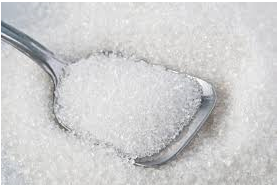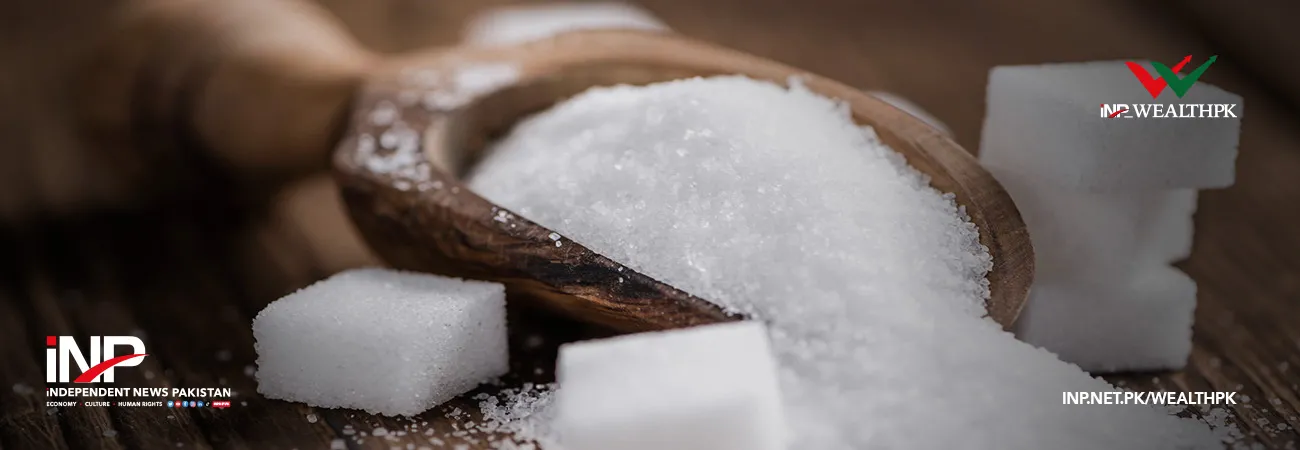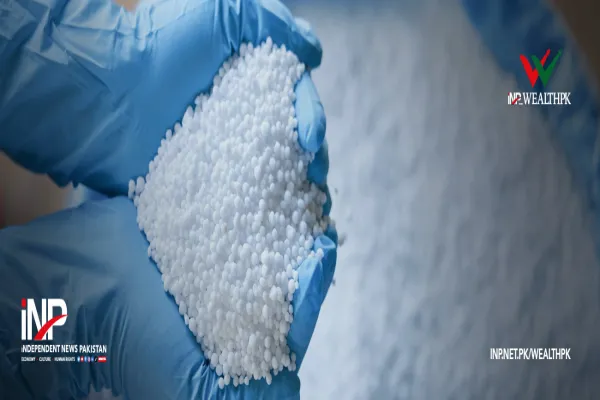i INP-WEALTHPK
Muhammad Luqman
Despite being one of the world’s top sugarcane-producing countries, Pakistan frequently faces sugar shortages, price hikes, and hoarding-driven scarcities. These recurring crises hurt consumers—especially low-income groups—distort markets, and often leave sugarcane farmers unpaid by millers under various pretexts.

In the 2024–25 crushing season, Pakistan produced approximately 84 million tonnes of sugarcane. Over 80 sugar mills converted this into around 7 million tonnes of sugar, considered sufficient to meet the needs of the country’s 250 million consumers till the next crushing season. Yet, as in previous years, sugar prices soared—reaching Rs 200 per kilogram by the end of June 2025—making it increasingly unaffordable for lower-income households.
Federal and provincial governments blamed profiteers and hoarders, launching crackdowns on wholesale markets such as Karachi’s Jodia Bazaar, Lahore’s Akbari Mandi, and Faisalabad’s Gol Karyana. Authorities also struck an agreement with the Pakistan Sugar Mills Association (PSMA), setting the ex-mill price at Rs 165 per kg and a retail cap of Rs 173 per kg.
However, these measures have yielded little success, as prices still remain above the fixed rates in most cities. In response to government raids, many retailers have halted sugar sales altogether. Sugar dealers, however, argue that millers first lobbied for export permissions and then manipulated the market to their advantage. “Raiding dealers’ godowns won’t bring prices down.
The government must ask the millers to reduce their prices,” said Salahuddin Butt, former chairman of the Lahore Sugar Dealers Association. Talking to WealthPK, he added that speculators and hoarders must be held accountable. “Unlike in the past, these actors are no longer confined to Akbari Mandi’s Babar Center, they’re operating from all over the country,” Butt said.
According to economists, with sugar selling at Rs 165 per kg, along with additional revenue from molasses and bagasse, sugar mills generate over Rs 1.55 trillion in protected earnings. Many mills also benefit from captive power generation using bagasse-fueled plants. The government has stopped issuing new licenses for sugar mills, effectively barring new entrants and allowing over 80 existing mills to enjoy zero competition.
Farmers, in turn, are forced to grow sugarcane to sell their crop to cartel-owned mills, while consumers continue to face inflated prices. “Many sugar mills in Pakistan are owned by politically influential families and politicians who benefit from artificially inflated prices through hoarding and reduced production,” said Dr Qais Aslam, a Lahore-based economist.
He noted that these mills also receive government subsidies under the pretext of earning foreign exchange. “These exports always result in price hikes in the domestic market,” Dr Aslam told WealthPK. Ironically, to lower prices, the government ends up allowing sugar imports. According to growers’ associations, sugar millers routinely delay the crushing season, citing excess carryover stock as a reason.
This not only halts payments to farmers but also suspends crop procurement altogether. “Besides consumers, sugarcane farmers are the biggest victims of these artificial crises. Millers refuse to buy the crop and delay dues from previous years,” said Akhtar Farooq Meo, Chief Organizer of Kissan Board Pakistan. He accused the government of failing to protect the interests of the farming community.
To assess the millers’ claims of rising production costs, the Punjab Food Department has proposed a third-party audit. “This step can help bring clarity and transparency to the official sugar pricing structure,” said Sibt-e-Hassan Shirazi, Additional Cane Commissioner, Punjab. Sugar millers argue that the permanent solution lies in deregulating the industry.
“Like rice and cotton, sugar should also be deregulated in the larger interest of both industry and consumers,” said Javed Kiyani, former central chairman of the PSMA. He criticized the government’s decision to allow sugar exports without maintaining a domestic buffer stock. “Instead of exporting and then scrambling to import, the government should have maintained a buffer stock of 0.5 million tonnes through the Trading Corporation of Pakistan,” Kiyani told WealthPK.
He said that each crushing season generates over Rs 1,000 billion in direct and indirect business activity across agriculture, transport, allied industries, wholesale, and retail markets,” he explained.
Credit: INP-WealthPk








